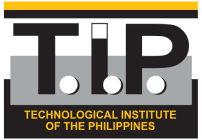

The Accounting Information System is a non-board accounting degree program designed for those who want to take accounting as their major field of study. The program focuses on relevant topics within two of the functional areas in accounting: accounting information systems.
The program incorporates courses in management, e-commerce, business law, taxation, financial and management accounting, designed to equip students, as future members of the workforce, with the necessary technical working knowledge of the business environment by exposing them to actual work situations through the Practicum Program where they work for a minimum of 400 hours (during their last term) in a company earlier qualified and approved by the department.
PROGRAM EDUCATIONAL OBJECTIVES
Three to five years after graduation, the Accounting Information Systems alumni shall:
• have advanced their practice or achievement in the field of Accounting Information Systems and/or other endeavors or advocacies supported by their acquired business education;
• strive to be globally competitive through
- living by the T.I.P. mission values, pursuing continuing education, and practicing continuous quality improvement
(CQI) in their personal lives;
- continuously scanning, adopting and building on the best practices in their field.
STUDENT OUTCOMES
By the time of graduation, Accounting Information Systems students will be able to:
a. Apply knowledge of business accounting information systems concepts and principles to solve issues and problems in a
global and strategic perspective
b. Communicate business ideas and information effectively both in oral and written forms
c. Use information and communication technology in generating business reports and making decisions
d. Apply principles of ethics and commit to Accounting information systems professional ethics and responsibilities
e. Function effectively as an individual and as a member or a leader of a diverse team in a multi-disciplinary settings
f. Conduct Accountancy information system research through independent studies of relevant literature and appropriate
use of business theories and methodologies
g. Preserve and promote “Filipino historical and cultural heritage” (based on RA 7722)
h. Recognize the need for, and prepare to engage in lifelong learning




